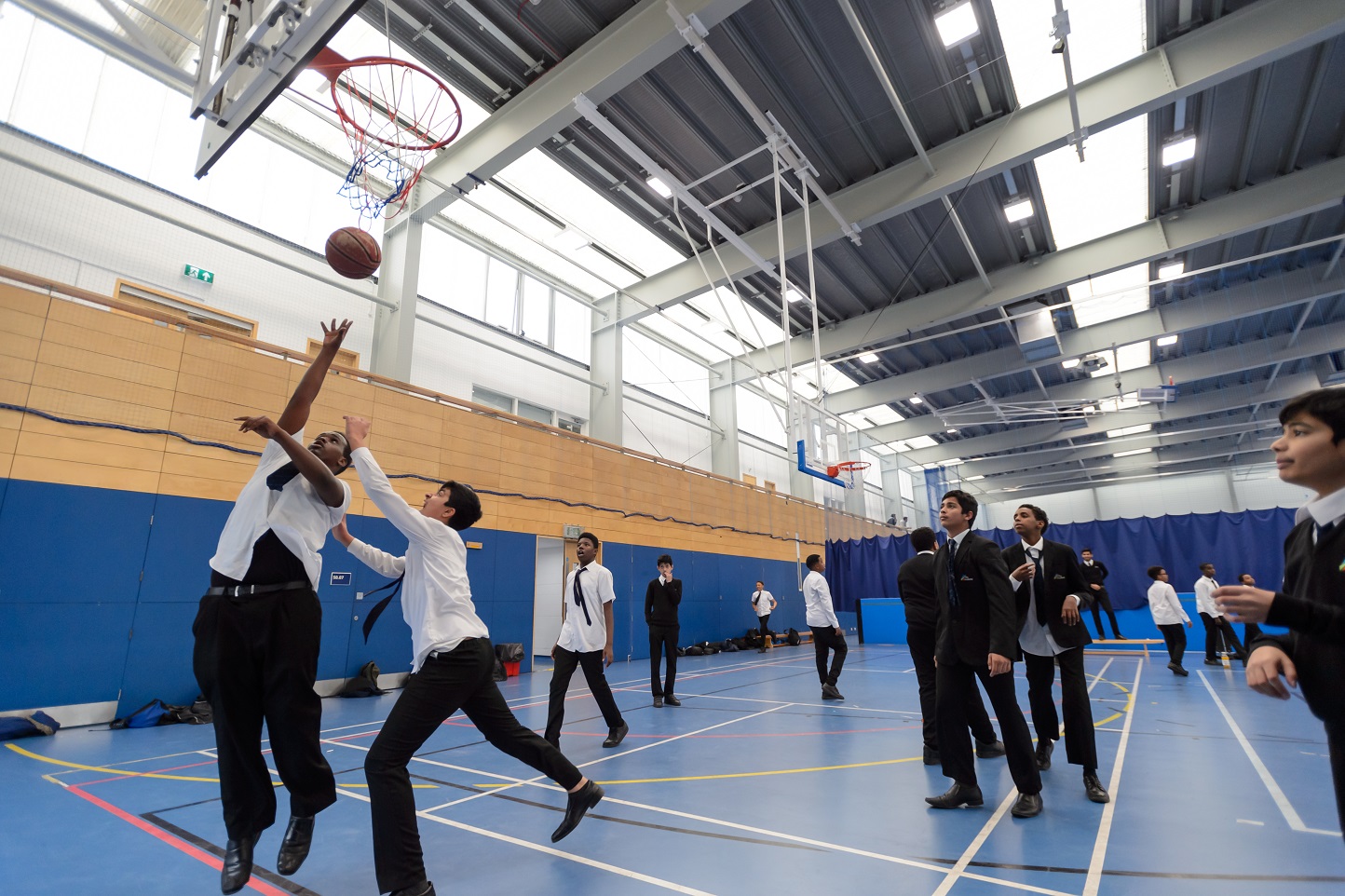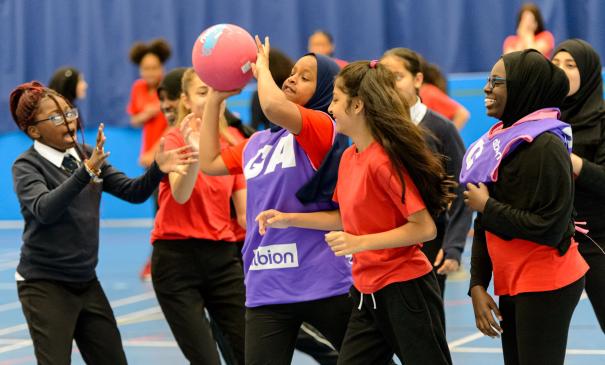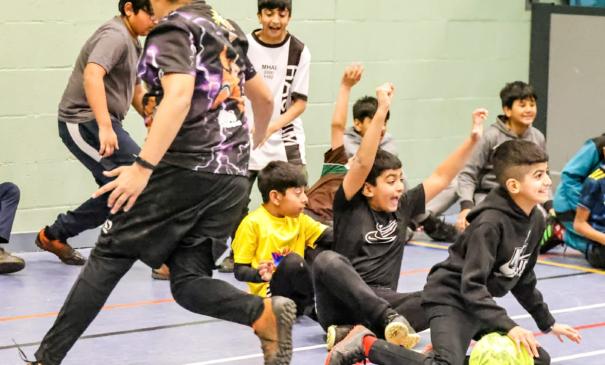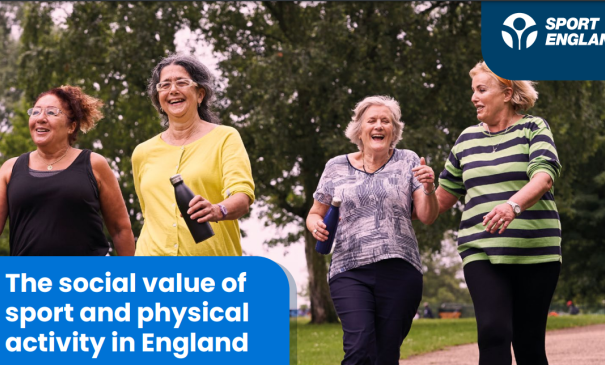Coalition supporters have given their backing to a new plan from the Centre for Social Justice (CSJ) which calls on the Government to guarantee two hours of extra-curricular sport every week for secondary school pupils in order to help boost academic attainment and reduce youth crime.
 The CSJ outlines what it calls a ‘Right to Sport’ for Britain’s 3.6million secondary pupils in its report entitled 'Game Changer: A plan to transform young lives through sport'. Report authors say the radical plan is much needed in the wake of the Covid pandemic, which led to the closure of schools for long periods. The two additional hours a week of sporting activity would be delivered on top of traditional PE time, and as part of new funds supporting extra-curricular activity provided on school premises by local community organisations, including sports clubs and charities.
The CSJ outlines what it calls a ‘Right to Sport’ for Britain’s 3.6million secondary pupils in its report entitled 'Game Changer: A plan to transform young lives through sport'. Report authors say the radical plan is much needed in the wake of the Covid pandemic, which led to the closure of schools for long periods. The two additional hours a week of sporting activity would be delivered on top of traditional PE time, and as part of new funds supporting extra-curricular activity provided on school premises by local community organisations, including sports clubs and charities.
The plan directly supports at least two of the key outcomes highlighted by the #OpenGoal Shared Advocacy Framework, which has been co-designed by Coalition supporters and seeks to demonstrate to policy-makers how investing in proven sport and physical activity-based interventions can help to reduce public spending. These are:
- Closing the gap in education & development
- Reduced crime & anti-social behaviour
According to the CSJ’s report, sport-based interventions were found by researchers to cut offending by 52%, significantly reduce violent crime, and boost numeracy skills among underachieving children by 29%. Yet a third of children today are inactive, that is, doing less than 30 minutes of exercise per day, and one in five pupils do no extra-curricular activities at all in an average week, rising to one in four pupils from disadvantaged backgrounds.
In alignment with #OpenGoal, and the Coalition’s submission to the 2021 Comprehensive Spending Review, the report also suggests how the proposals could be funded “in a cost-neutral way”. Authors say they “are confident that a comprehensive package of extracurricular activity would make a very substantial positive impact on Government finances from the many ways in which it would prevent the need from spending elsewhere - not least including health outcomes, policing, and more.” They also suggest a range of alternative funding sources such as the Soft Drinks Industry Levy, and Dormant Assets Scheme, and longer term the UK Shared Prosperity Fund and a proposed new £1billion payment-by-results ‘Outcomes Fund’.
Coalition supporters responding to the CSJ report included:
- James Mapstone, co-founder and Chief Executive of the Alliance of Sport in Criminal Justice and Coalition Board member, who said: “We are pleased to see this report back up some of the recommendations in our 'Get Well, Stay Well' Agreement, such as the importance of strong partnerships with community sport organisations and the publication of sport and physical activity hours in the custodial estate. The report makes a really strong case with some bold calls to action. We look forward to seeing its impact and supporting it in whatever way we can in the future.” Read the Alliance's full response.
- Zenna Hopson, CEO of Dallaglio RugbyWorks and co-chair of the Coalition's Policy Working Group, commented: “At Dallaglio RugbyWorks, we were delighted to be mentioned in this fantastic report, along with the contribution from our founder, Lawrence Dallaglio, who shed light on the impact that sport can have in offering a lifeline to young people who can often be left behind. As a proud member of the Sport for Development Coalition, we are honoured to be part of the driving force behind actioning the recommendations outlined in this report, and ensuring that young people are afforded opportunities which re-engages them in education, diverts them from a life of crime, and ensures that they know how they can make an impact on society, no matter how small, to leave it better than how they found it.”
- Ali Oliver MBE, CEO of Youth Sport Trust and Coalition Board member, said: “In a rapidly changing world with increasingly sedentary and online lifestyles, it is important that as many voices from across the political spectrum as possible make the crucial argument, that children and young people should have the opportunity to take part in sport, be active and play, before, throughout and after the school day.” Read the full response.
- Gary Laybourne, CEO of Coach Core, stated: “The Coach Core team are delighted to see the Centre for Social Justice’s ‘Game Changer’ paper highlighting the current climate linked to children’s sport and physical activity and how the sector can also play a vital role in addressing wider youth crime and anti-social behaviour. The charity fully supports the recommendations laid out, particularly those linked to a review of the workforce and coaching solutions that we know first hand can lead to multiple, positive impact outcomes for society. For over a decade, Coach Core has used its innovative apprenticeship programme to create true social mobility and drive powerful change in communities around the UK. We are therefore extremely excited to support the CSJ with a number of the ambitions stated within this paper.

- James Reeves, Senior Press and Advocacy Manager at Football Beyond Borders (FBB), co-ordinated a workshop including FBB programme participants to support the CSJ’s call for evidence which informed the report. He said: "Young people have the answers to the important issues of our generation and we were delighted to work with the CSJ to give them time and a platform to share their ideas. Preventing serious youth violence and improving education outcomes requires intensive, trauma-informed youth work and the report highlights the unique role that sport can play in delivering this."
- Stuart Felce is Director, Strategic Business Relationships at StreetGames, and earlier this year helped to co-ordinate the Youth Justice Sport Fund (YSJF), a £5million fund from the Ministry of Justice delivered by Coalition partners. He said: “We welcome the report and its alignment to the recently-published report of the YJSF, with recommendations linked to key partnerships and collaborations at both a strategic national and local delivery level. We look forward to supporting any opportunity to bring to life the findings in the report that continue to champion the role of Doorstep Sport being delivered at the heart of communities by locally-trusted organisations.”
- Martin Bisp, CEO of Empire Fighting Chance, commented: “At Empire Fighting Chance we were pleased to be mentioned in the report. We have long recognised the power of sport in reducing crime and anti-social behaviour whilst improving physical and mental health. We work with many young people within the criminal justice system and gang violence, and find sport is often the only activity that can create and maintain engagement. Sport has the power to transform both lives and communities and we look forward to supporting the report in any way we can.”
- Dominik Stingas Paczko, Head of Participation & Community Engagement for the EFL Trust, said: “Through our experience of delivering over 62,000 individual community based interventions annually for ‘at-risk’ young people, as well as those already in the criminal justice system, we know first hand the impact that sport can have in changing lives. EFL clubs and their Community Club Organisations delivered £856million of social value during the 2021/22 season across our local communities, so we are encouraged by the recommendation that the Government focuses on sport for social good and harnesses the power of sport to achieve social policy objectives. We are looking forward to engaging with Government and working with our colleagues across sport and the coalition to achieve this aim.”
Former England rugby union captain Lawrence Dallaglio, who helped to launch the Coalition's #OpenGoal framework in 2022, was an adviser to the report. He said: “The evidence clearly shows how sport can cut offending rates and improve school attainment. The CSJ’s proposal for a minimum of two hours’ extra-curricular sport a week for teenagers – on top of their regular PE classes and provided by community sport organisations – would bring state secondaries more into line with private schools."
FUTURE
The CSJ, the think-tank set up by former Conservative leader and Cabinet minister Sir Iain Duncan Smith 20 years ago, advocates for public policies to tackle the root causes of poverty and sees sport as a key area of missed opportunity for this. In the report, it states: “In recent years, young people have fallen to the bottom of the political agenda.
“Now is the time to double down on our commitment to the next generation. After the damage inflicted by successive lockdowns, we owe it to our young people to offer them the brightest possible future. We believe that sport holds the key to this.”
Read the report 'Game Changer: A plan to transform young lives through sport'.



